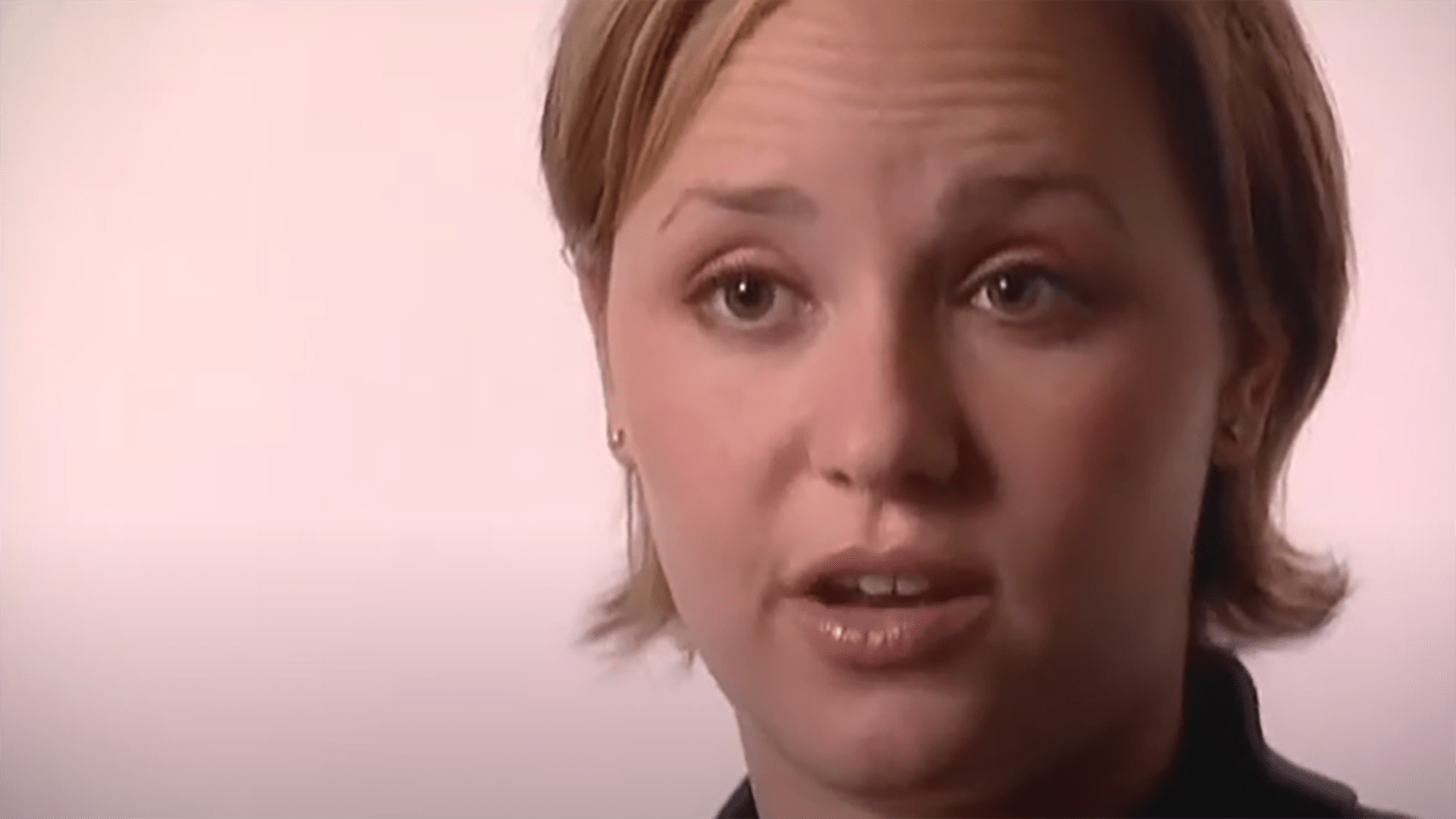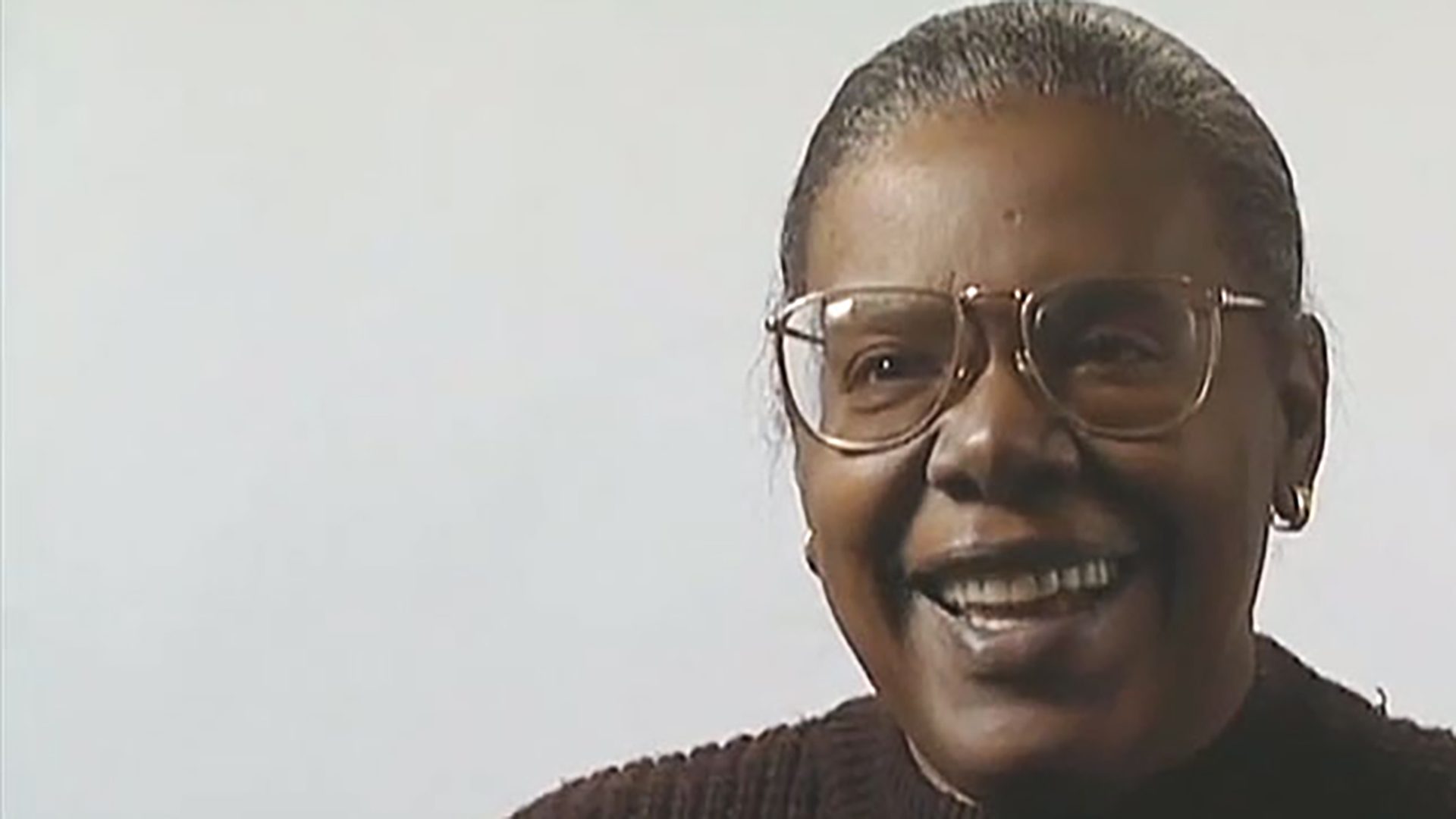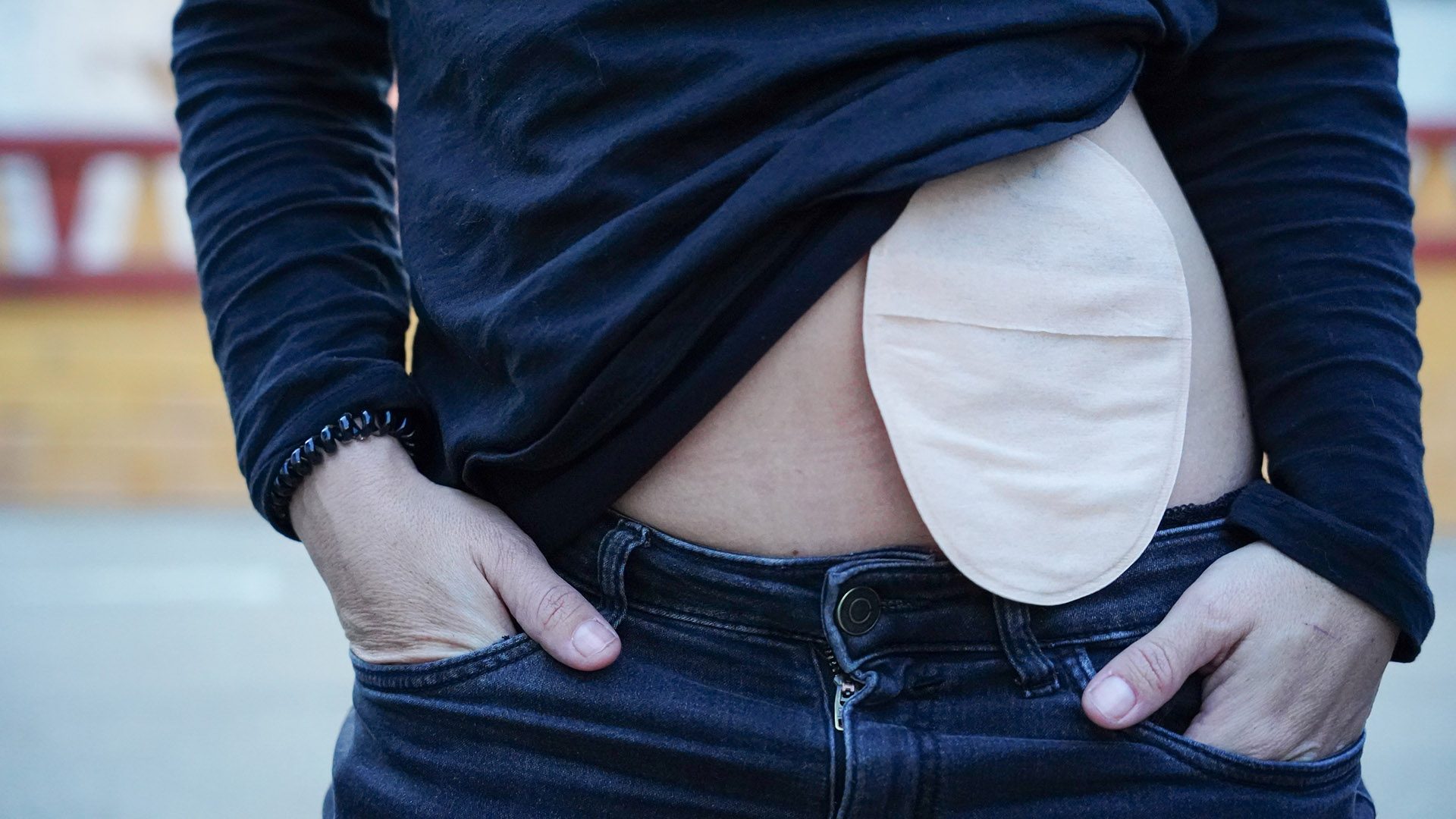Survivor Interview – Amy D.
Amy is an osteosarcoma survivor. She talks about telling others she is a survivor, her relationship with her parents, physical rehabilitation and body image.

I became a cancer survivor on March 14, 1996, when I was diagnosed with osteosarcoma a month before my sixteenth birthday. Osteosarcoma is a very rare and very aggressive form of bone cancer. My life changed drastically within the period of about a week.
I had limb-salvage surgery, where they replaced all the bone that had been affected by cancer with metal. The biggest physical challenge was relearning how to walk and run and move my body. The muscles that maybe were used for one thing are a little bit different after surgery, so you’re having to modify what’s happening within your own body and think about movement in terms of the small processes that come together to make one big movement.
I couldn’t look at my scar for two or three weeks after my surgery. I think because it felt like it wasn’t part of my body yet. After I decided that it was okay and that I was going to embrace it on certain terms, it wasn’t long after that I started being pretty flamboyant about it in public and wearing skirts and shorts and seeing it as something that made me different and special, not different and weird.
I went from swimming competitively and cheerleading to not being able to do anything on my own. I think that loss of control either makes you want to fight a lot harder to get back or it makes you give up. You have to make the choice. I honestly think that so much about survivorship is just being focused on what you are doing and moving forward in that, and being stubborn and wanting something and working for it really hard.
After my surgery, I started going to physical therapy about three times a week for two to three months. Then my life was so busy that I didn’t go back much more. Once I had gotten to the place where my muscles were starting to remember how to work, I decided that the best way for me to be motivated to get better was to do things that I like to do anyway. So I would take a walk around the block with my dog, and I would think about the way that my muscles were moving and focus on walking a certain way. I would go to cheerleading practice in high school, and I started swimming again for my swim team, focusing again on using the muscles. In remembering what I was living for and wanting to do those things again, I think that became an important part of my physical recovery.
One of the most important things for me in learning how to deal with my new body and my new scar was understanding that sharing with other people is going to make it easier. Because in order to be accepted for who you are, people have to understand who you are and if you are not willing to share that with people, then how do you expect them to know? My policy was always to tell anybody that wanted to hear and be as open as possible about what was going on in my life.
It’s only probably been in the last couple of years that I’ve decided that I don’t have to tell everyone the whole story, and that some people really don’t care to know. That realization came when my good friend finally said, “Amy, you don’t have to tell everybody that you had cancer. You can just say, I had knee surgery, and that’s enough if you don’t feel like talking about it.” I had expressed to her how draining it could be for me to have to give so much to people when they asked me about what was going on. That was something that was really freeing for me. I understood that it was important to be open, but it’s also important to choose when you want to be open.
Emotionally, a lot of things changed. I think that your friendships in high school change, because a lot of people don’t understand what’s going on. So instead of dealing with it, they either try to ignore it or ignore you. And both of those can be pretty hurtful. I think at the same time, though, there’s a lot of people that will surprise you with how incredible and thoughtful and consistent they can be in your life.
For my family, emotionally, things changed in many ways. My mom and dad became really focused on me. I have a little brother and sister, and I know that that was hard for them. My sister said that, for probably a year, nobody asked about her. They said, “Hi, Kathy, how’s your sister?” My brother was little enough that he didn’t understand a lot of what was going on. Now he says that he wished people had told him more. People thought that they didn’t understand and didn’t need to know, but instead they imagined things that were probably much worse than what was going on.
With my parents, there’s a huge sense of connectedness. They give as much, if not more, to your treatment and your recovery. Even after treatment, that emotional connection is very strong. I know my mom will probably always be more protective of me than she is with my brother or my sister. Every year when I go back for my checkups, my mom is the one who can’t sleep for a week. And then, as soon as we get out of there with an okay and good scans, you can just see her kind of relax. I think that she doesn’t want to make me nervous, so she tries to hide things from me. They still say funny things to me like, “Honey, you are a cancer survivor and you are different. So if you get tired at work, you tell them that you need to go take a nap.” Who else’s parents in the world tell them that they don’t need to work too hard? It’s kind of surreal.
I think there is the tendency upon the part of those who interact with a survivor to want to baby the survivor. It’s an interesting balance, because there are times when we need help, but there are times when we don’t want help. I maybe should not move heavy boxes, but I may want to feel control over that issue. I may want to walk around the block by myself even when it may not be the best choice for me. It may not always be the best decision, but it’s an important part of empowering that person and giving them a little control over their life. I think the issue is just to be aware that survivors still know what they want and they still want to assert control and have a part in the making of their own decisions.
What was hardest for me about entering the job field was trying to differentiate between who I was as a cancer survivor and who I was just as me. Whether I wanted to pursue some sort of field that would be able to incorporate those two things, or whether I wanted to be in some place totally different where I never interacted with people on the level of being a survivor. The more I thought about it, the more I realized it would be really healthy for me to find some closure in the area of survivorship by helping other people who are going through the same thing and hopefully offering some sort of guidance and insight. What to look forward to, what to look out for and all those things.
I think that, as survivors, we can all feel pressure because you’ve been saved, so to speak. You’ve been granted another chance at life; you are expected to live something better or special or different or more or higher than other people. But I think that, as I come farther in my journey of survivorship, I learn more that it’s okay just to be me.
When I finished treatment, there were a lot of different emotional and psychological things that started happening. For one, you are used to being the center of attention. There begins to be a sense that everything you do is the most important thing in the world to everyone around you. And once you get off treatment, you have to let go of a lot of things that have been consistent and have made you feel supported for the time you’ve been in treatment. It’s hard to let go of chemo, of your nurses, of your routine, because your life has been dependent on those things.
It begins to be about how you redefine yourself as a person, drawing on all those things that you’ve experienced and making yourself into the new person that you want to be. I think survivorship is process of the journey; about being open with yourself and learning about yourself, and taking all your experiences and putting it together with who you are to make yourself even more incredible than you were before.
My name is Amy Dilbeck, I’m 23 years old, and I’m a bone cancer survivor.

